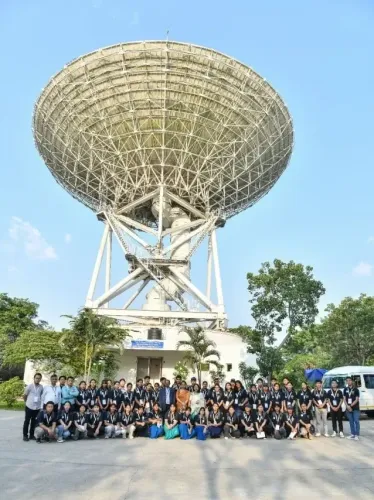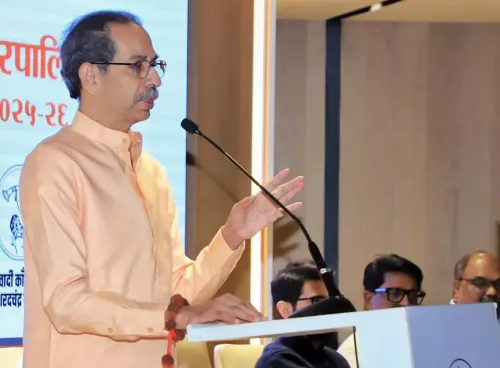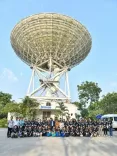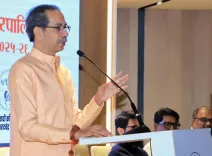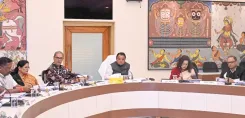Are Top Diplomats and Industry Experts Advocating for Enhanced Defence Industrial Cooperation between India and the EU?
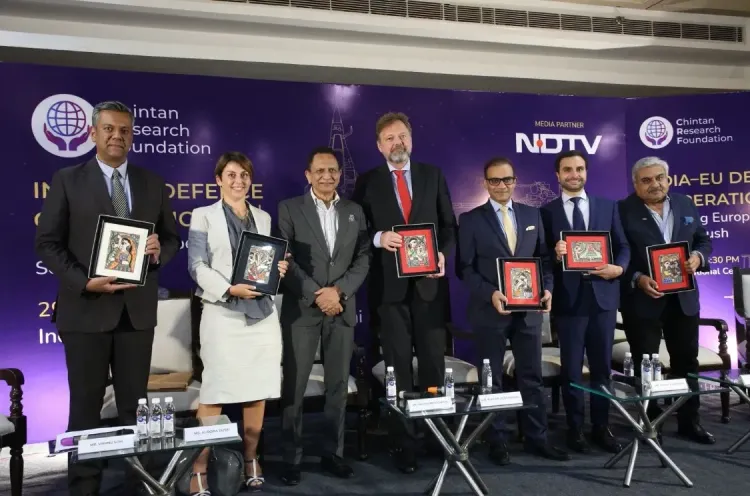
Synopsis
Key Takeaways
- Defence industrial cooperation is becoming central to India-EU relations.
- The Make in India initiative is pivotal for India's defence transformation.
- Joint ventures and technology partnerships are crucial for enhancing defence capabilities.
- Strategic autonomy emphasizes trusted partnerships over isolation.
- Maritime security is critical in India-Italy defence relations.
New Delhi, July 30 (NationPress) Leading diplomats and industry specialists have highlighted that the defence industrial collaboration between India and the European Union (EU) is transitioning from a peripheral aspect to a core component of the strategic frameworks in both regions.
Hosted by the Chintan Research Foundation (CRF), a high-profile closed-door dialogue on 'India-EU Defence Cooperation: Partnering for Europe’s Security Initiatives' convened senior European diplomats, Indian industry executives, and strategic analysts to discuss the intersection of India’s defence evolution with the EU’s changing security dynamics.
During the meeting, Ashish Rajvanshi, CEO of Adani Defence and Aerospace, emphasized India's transition from a defence equipment importer to a potential global supplier. He highlighted three significant milestones: the 2014 'Make in India' initiative, strategic operations like 'Operation Sindoor', and the push for indigenization under the Defence Production Policy.
Stressing the importance of India's self-reliance movement, he stated, 'What we've accomplished in telecommunications can be mirrored in defence' and emphasized the country's preparedness to offer volume-driven, cost-efficient solutions to European partners.
On Adani's contributions, he noted, 'At Adani Defence and Aerospace, we recognized that ready-made talent would not always be available, so we established systems to train, mentor, and develop it. Whether it's NATO-certified ammunition or large-scale manufacturing capabilities, we've committed to creating what India and our global allies require at both scale and quality.'
The discussions revolved around the EU’s newly unveiled Readiness 2030 (ReArm Europe) initiative, which is an €800 billion endeavor aimed at boosting Europe’s defence independence. India’s defence manufacturing abilities, through the 'Make in India' and Atmanirbhar Bharat initiatives, can support this initiative via joint ventures, technology collaborations, and co-production prospects.
Damien Syed, Deputy Head of Mission from the French Embassy, reaffirmed the pivotal role of defence in the India-France partnership. He noted that French defence firms are not only supplying vital technologies like jet engines but are also eager to co-develop next-generation platforms with India.
'Strategic autonomy is not synonymous with isolation; it’s about forging trusted alliances', remarked Syed.
Germany's Ambassador to India, Philip Ackermann, discussed Europe's recalibrated security stance following the onset of the conflict between Russia and Europe in 2022. He pointed out, 'The US security umbrella over Europe has shifted. We must now cultivate our own capabilities.' He emphasized Germany's strengthened defence cooperation with India, particularly in submarine production, and recognized India as a like-minded ally in maintaining global order.
In his introductory remarks, CRF President Shishir Priyadarshi stressed the necessity of perceiving India-EU defence relations as more than mere transactions. He stated, 'We need to transition towards co-development and establish a reliable, trusted manufacturing ecosystem between Indian and European firms' and called for harmonization of regulations and a deeper understanding of each other’s industrial strengths.
Discussions also addressed pressing issues such as rare earth material supply chains, the small arms sector within India’s manufacturing drive, and reputational factors associated with exports and Free Trade Agreements (FTAs).
Italy’s Charge d' Affaires Aurora Russi emphasized that maritime security forms the backbone of India-Italy defence relations. She stated, 'We’ve conducted four significant port calls and increased joint exercises with India’s Navy in the past two years alone. Our strategic roadmap is taking shape.' She noted that relations between the two nations were elevated to strategic ties since 2023, following the signing of the Defence Cooperation Memorandum of Understanding (MoU) in April.
Former Indian Ambassador Anil Wadhwa contextualized the India–EU relationship within a geopolitical framework. He highlighted India’s ongoing defence relations with Russia while recognizing the diversification process. He mentioned, 'Europe is increasingly perceived as a reliable partner. Collaborations in areas like shipbuilding and the maritime sector can deliver substantial value.'
During the discussions, European officials reiterated their strong confidence in India as a trustworthy partner, with minimal concerns regarding defence engagements with other regional countries. The event culminated with a unified vision of India and the EU as reliable partners navigating towards a more autonomous, secure, and technologically sophisticated global defence landscape.




